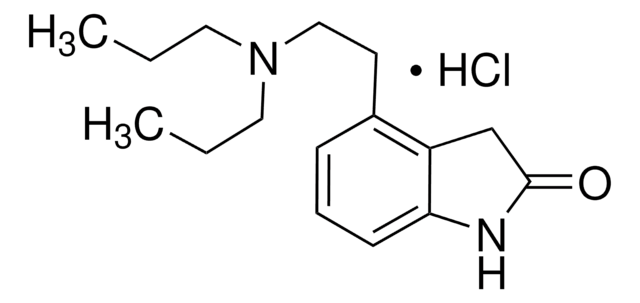SML3656
PAPTP trifluoroacetate
≥98% (HPLC)
Sinónimos:
(3-(4-(4-((7-Oxo-7H-furo[3,2-g]benzopyran-4-yl)oxy)butoxy)phenyl)propyl)triphenyl phosphonium trifluoroacetate, (3-(4-(4-(7-Oxo-7H-furo[3,2-g]chromen-4-yloxy)butoxy)phenyl)propyl)triphenylphosphonium trifluoroacetate
About This Item
Productos recomendados
Nivel de calidad
Análisis
≥98% (HPLC)
formulario
powder
condiciones de almacenamiento
desiccated
color
white to beige
temp. de almacenamiento
-10 to -25°C
cadena SMILES
O=C1C=CC2=C(C3=C(C=C2O1)OC=C3)OCCCCOC4=CC=C(C=C4)CCC[P+](C5=CC=CC=C5)(C6=CC=CC=C6)C7=CC=CC=C7
Acciones bioquímicas o fisiológicas
Precaución
Código de clase de almacenamiento
11 - Combustible Solids
Clase de riesgo para el agua (WGK)
WGK 3
Punto de inflamabilidad (°F)
Not applicable
Punto de inflamabilidad (°C)
Not applicable
Certificados de análisis (COA)
Busque Certificados de análisis (COA) introduciendo el número de lote del producto. Los números de lote se encuentran en la etiqueta del producto después de las palabras «Lot» o «Batch»
¿Ya tiene este producto?
Encuentre la documentación para los productos que ha comprado recientemente en la Biblioteca de documentos.
Nuestro equipo de científicos tiene experiencia en todas las áreas de investigación: Ciencias de la vida, Ciencia de los materiales, Síntesis química, Cromatografía, Analítica y muchas otras.
Póngase en contacto con el Servicio técnico








